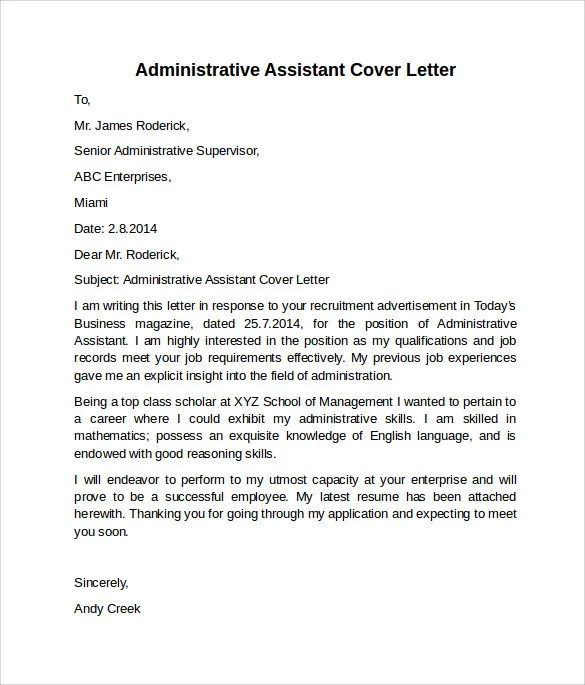Why an Administrative Fellowship Cover Letter Matters
An administrative fellowship cover letter is your first impression, your introduction to the selection committee. It’s your chance to stand out from the crowd and showcase why you are the perfect candidate for the fellowship. This letter should not simply reiterate your resume; instead, it should be a compelling narrative that highlights your skills, experience, and passion for healthcare administration. A well-crafted cover letter significantly increases your chances of securing an interview and, ultimately, the fellowship. It is more than just a formality; it is a strategic tool that allows you to personalize your application and demonstrate your genuine interest in the specific opportunity.
Highlighting Your Skills and Qualifications
Your cover letter should immediately spotlight your relevant skills and qualifications. This is not a place for generic statements; instead, provide concrete examples of how your past experiences have prepared you for the fellowship. Did you manage projects, analyze data, or lead teams? Quantify your achievements whenever possible. For example, mention the number of projects you managed, the percentage improvement in efficiency you achieved, or the size of the team you led. This section of your cover letter is where you convince the reader that you have the required skills.
Researching the Organization
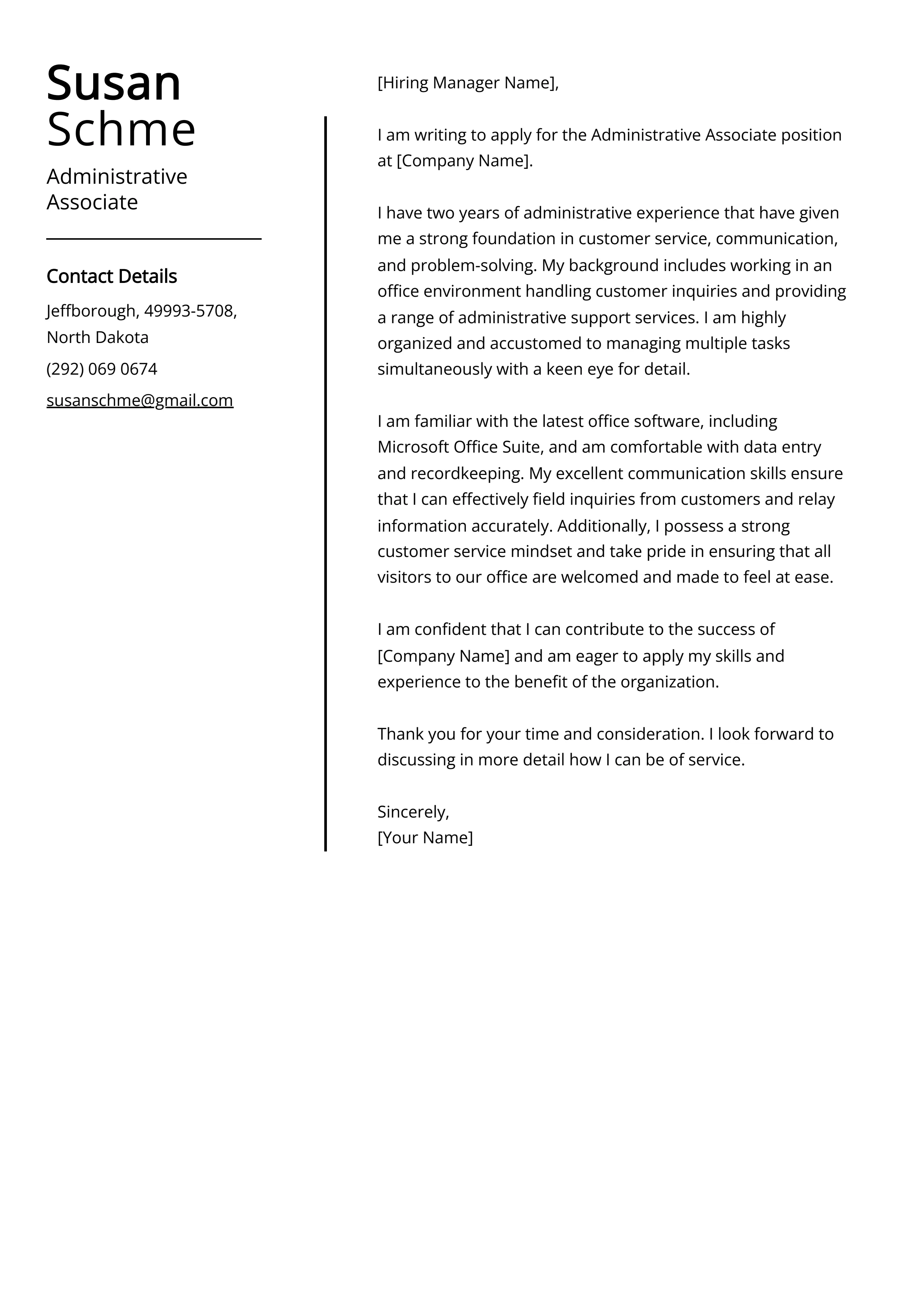
Before you begin writing, thoroughly research the organization offering the administrative fellowship. Visit their website, read their mission statement, and learn about their recent initiatives. Understand their values, culture, and the specific challenges they face. This information will help you tailor your cover letter to demonstrate that you understand the organization’s needs and goals. This will also allow you to explain your interest in them. Mentioning specific projects, programs, or values of the organization in your cover letter shows that you are genuinely interested and that you’ve put in the effort to understand their work.
Tailoring Your Letter to the Fellowship
Each administrative fellowship is unique, so tailor your cover letter to the specific requirements and expectations of each position. Review the job description carefully and identify the key skills and experiences the organization is looking for. Then, use your cover letter to highlight the experiences and skills that align with those requirements. Customization is key; a generic cover letter will not impress the selection committee. It is important that you show how your background and goals align with the fellowship program’s objectives.
Structuring Your Administrative Fellowship Cover Letter
A well-structured cover letter is easy to read and makes a strong impact. A cover letter should include a header with your contact information, an opening paragraph that grabs the reader’s attention, body paragraphs that showcase your skills and experience, and a closing paragraph that reiterates your interest and expresses gratitude. Each section has a specific purpose, and all of them, when put together, will make your cover letter shine and get you noticed by recruiters. Make sure to use clear and concise language, and keep each paragraph focused.
Header and Contact Information
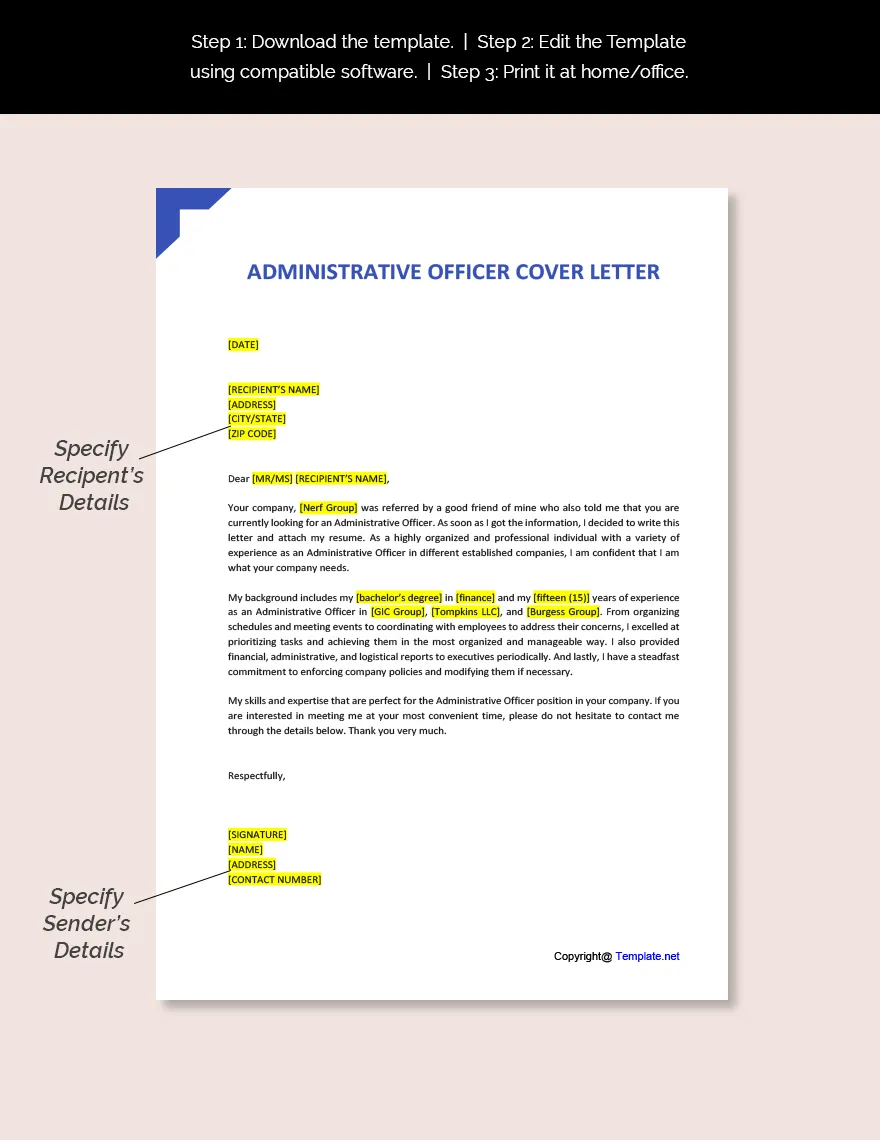
At the top of your cover letter, include your full name, address, phone number, and email address. Ensure this information is accurate and up-to-date. Also, include the date and the hiring manager’s name and title if you know it. This detail shows that you pay attention to detail and that you have done your research. If you are submitting your cover letter electronically, choose a professional-looking font and format it correctly.
Opening Paragraph
The opening paragraph is your first chance to make a strong impression. State the position you are applying for and how you learned about it. Briefly highlight your most relevant qualification and express your enthusiasm for the fellowship. Make it engaging and make the reader want to know more about you. Avoid generic phrases and try to show what makes you unique. Consider using a hook to capture the reader’s attention from the start, such as a brief story or a compelling statistic.
Body Paragraphs
The body paragraphs are where you provide specific examples of your skills and experience. Use the STAR method (Situation, Task, Action, Result) to describe your experiences and accomplishments. This method helps you structure your responses in a clear and concise way, highlighting your skills and demonstrating your achievements. Focus on the responsibilities and skills that are most relevant to the fellowship requirements and demonstrate your experience through practical examples. Use action verbs to make your descriptions more dynamic and engaging. Keep each paragraph focused on a specific skill or experience.
Closing Paragraph
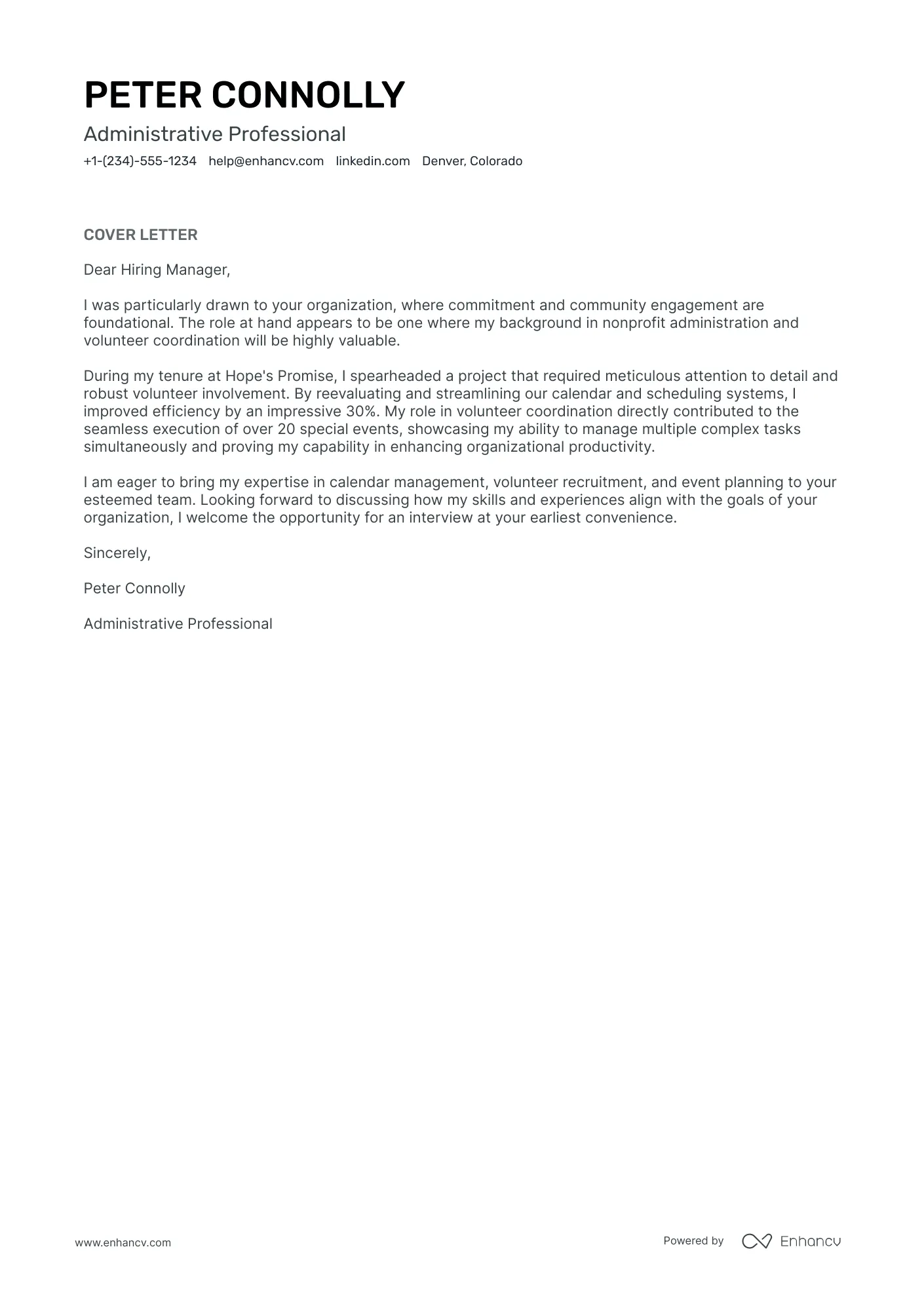
In the closing paragraph, reiterate your interest in the fellowship and express your gratitude for the opportunity to apply. Briefly summarize why you are a good fit for the position and restate your enthusiasm. Include a call to action, such as a request for an interview, and provide your contact information again. Maintain a professional tone and thank the hiring manager for their time and consideration. Close the letter formally.
Proofreading and Editing
Before submitting your cover letter, carefully proofread and edit it for any errors in grammar, spelling, and punctuation. Ask a friend, mentor, or career counselor to review your letter and provide feedback. A cover letter with errors undermines your credibility. Ensure your letter is concise, well-organized, and easy to read. Check the letter’s format and make sure it follows the guidelines. Paying attention to the details is crucial; this is your final opportunity to make a good impression.
Showcasing Your Experience
Your cover letter is your chance to go beyond the surface-level descriptions of your resume and delve into the details of your experiences. Use specific examples to demonstrate your abilities and how you have applied them in past experiences. This is where you can truly distinguish yourself from other candidates. Include quantifiable achievements, such as the number of projects you managed, cost savings you achieved, or improvements in efficiency. Showcasing your experience will help you to stand out.
Emphasizing Relevant Skills
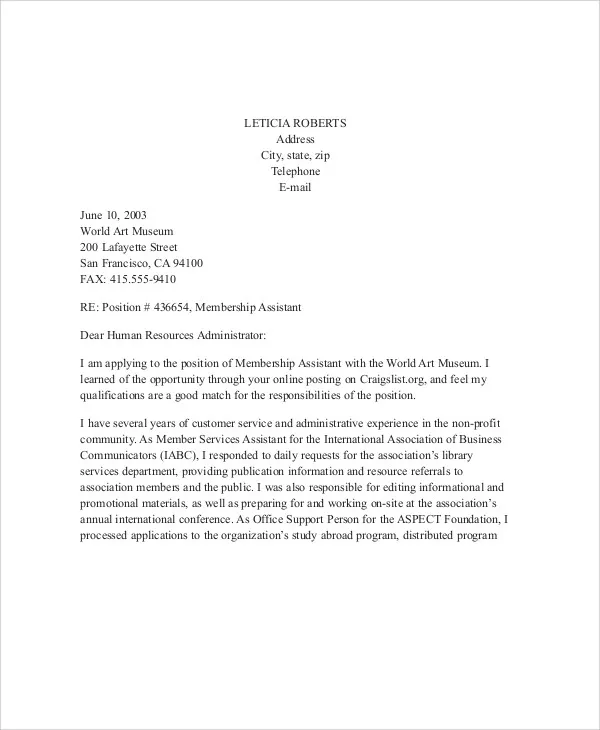
Highlight the skills that are most relevant to the administrative fellowship you are applying for. Research the job description and identify the key skills the organization is looking for. Some of the most sought-after skills include project management, data analysis, communication, leadership, and problem-solving. Tailor your cover letter to emphasize the skills and experience that align with those requirements. This shows that you are a perfect fit for the position.
Leadership Abilities
Administrative fellowships often seek candidates with leadership potential. If you have experience leading teams or projects, be sure to highlight it. Provide specific examples of your leadership abilities, such as the projects you led, the challenges you overcame, and the results you achieved. Describe your leadership style and how you motivate and inspire others. Showcase your ability to work collaboratively and effectively, and how you have helped projects and teams to succeed. Ensure that you have experience in this and use it in your favor.
Communication and Interpersonal Skills
Healthcare administration requires excellent communication and interpersonal skills. In your cover letter, provide examples of how you have effectively communicated with different stakeholders, such as patients, physicians, and staff. Demonstrate your ability to listen actively, resolve conflicts, and build strong relationships. Show how you have adapted your communication style to different audiences. This is where you can give examples of how you have achieved good results and the skills you used to do it.
Demonstrating Your Passion
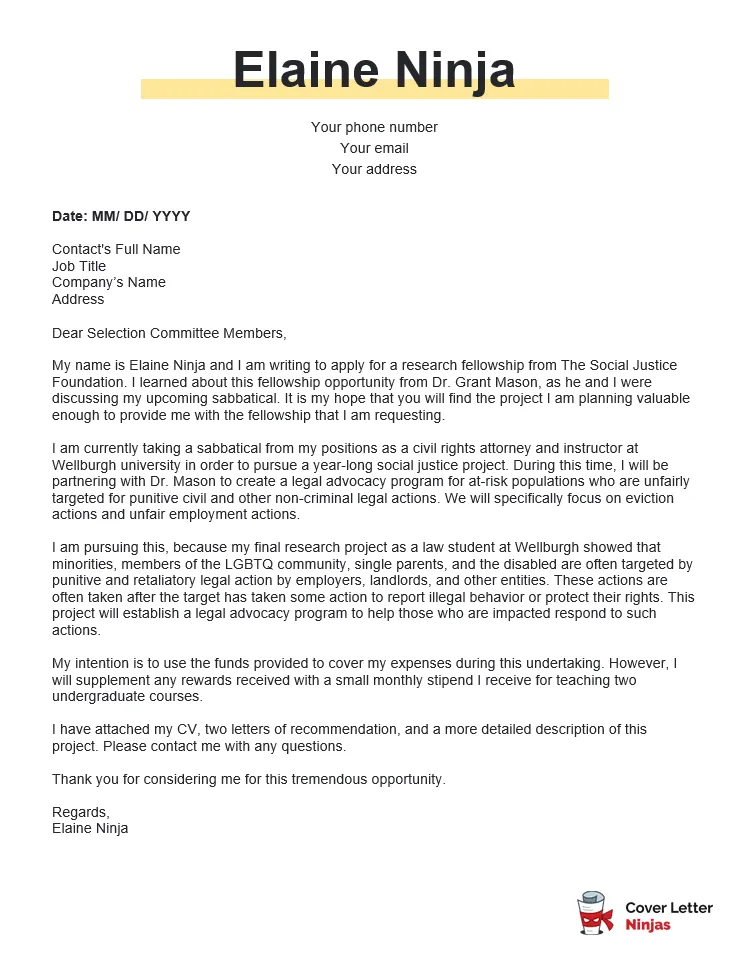
Your cover letter should reflect your genuine passion for healthcare administration. This will show through in how you express your interest in the organization, your career goals, and your enthusiasm for the fellowship. If you are passionate about your field, the recruiters will be able to see it, and it will add to your success. Your cover letter should show your eagerness to learn and contribute to the organization. This passion is crucial to making a strong first impression.
Expressing Your Interest in the Organization
Show that you have researched the organization and understand its mission, values, and goals. Mention specific projects, programs, or initiatives that you find particularly interesting. Explain why you are drawn to the organization and how your values align with theirs. Demonstrate that you have a clear understanding of the organization and its place within the healthcare landscape. This effort will show your genuine interest in the position and the organization.
Articulating Your Career Goals
Clearly articulate your career goals and how the administrative fellowship will help you achieve them. Explain what you hope to gain from the fellowship and how you plan to contribute to the field of healthcare administration. Connect your goals to the organization’s mission and vision. Highlight how the fellowship aligns with your long-term career aspirations. This will show the selection committee that you have a clear vision for your future and that the fellowship is a stepping stone to achieving your goals.
Formatting and Style
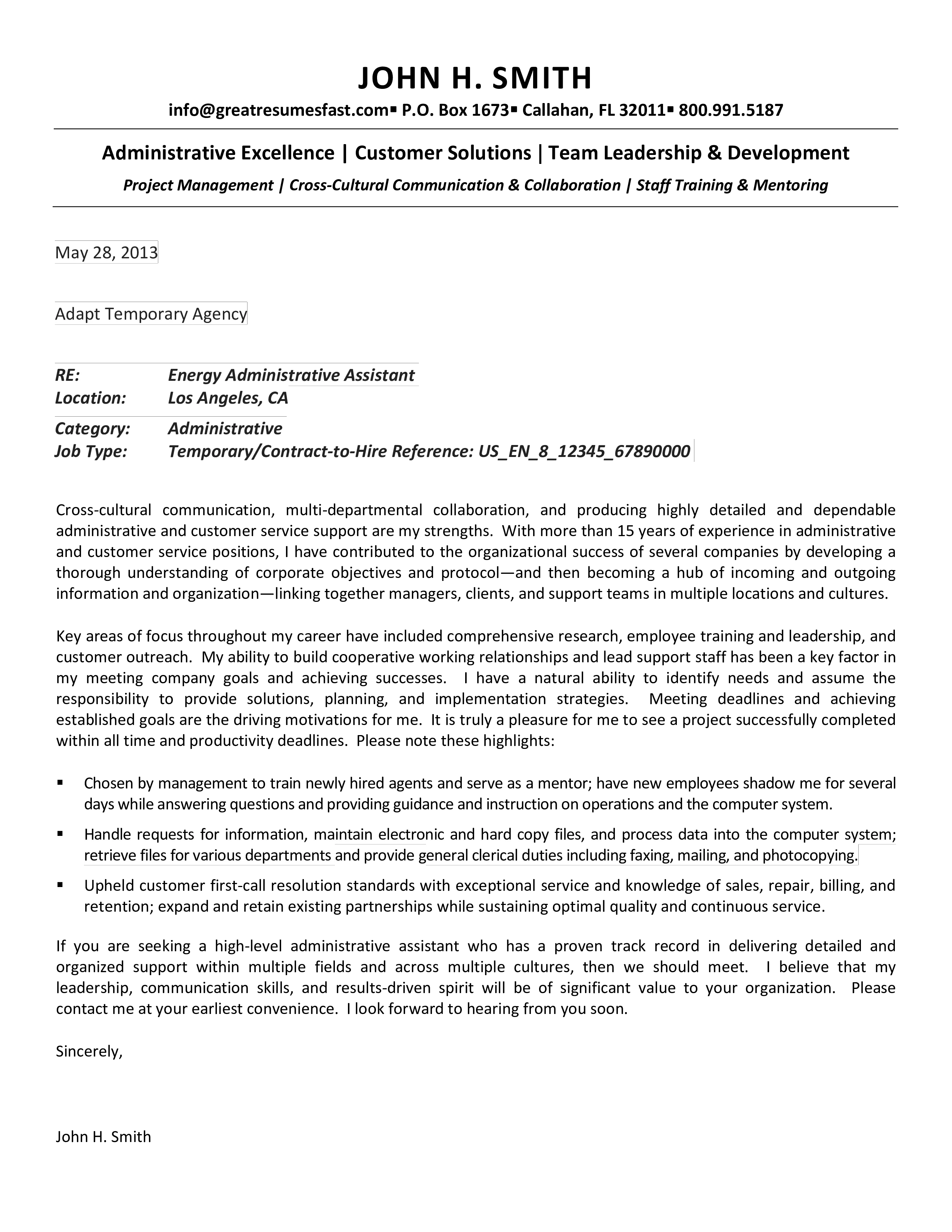
The formatting and style of your cover letter is just as important as the content. A well-formatted cover letter is easy to read and professional-looking. The formatting and style show how much care and attention to detail you have invested in your application. Using a clear and concise format will make the recruiter see your qualifications. Ensuring all the formatting is followed is a key factor in achieving your goal.
Font and Formatting Guidelines
Choose a professional font such as Times New Roman, Arial, or Calibri. Use a font size of 11 or 12 points. Ensure your cover letter is well-organized with clear headings and subheadings. Use ample white space to make the letter easy to read. Use consistent formatting throughout, and use bullets to present information. This will give your cover letter a clean and professional look.
Tone and Language
Maintain a professional and enthusiastic tone throughout your cover letter. Use clear and concise language, and avoid jargon or slang. Use action verbs to describe your skills and experiences. Proofread carefully for any errors in grammar, spelling, and punctuation. Your writing must reflect your personality. Make sure to tailor your tone to the position and the organization you are applying to.
Common Mistakes to Avoid
There are several common mistakes to avoid when writing an administrative fellowship cover letter. These include using generic language, not tailoring the letter to the specific fellowship, and failing to proofread carefully. Writing a cover letter is very important; make sure to take your time and write it with care. This section will show you some of the mistakes you must avoid at all costs. Make sure not to repeat your resume, and show your understanding of the healthcare industry.
